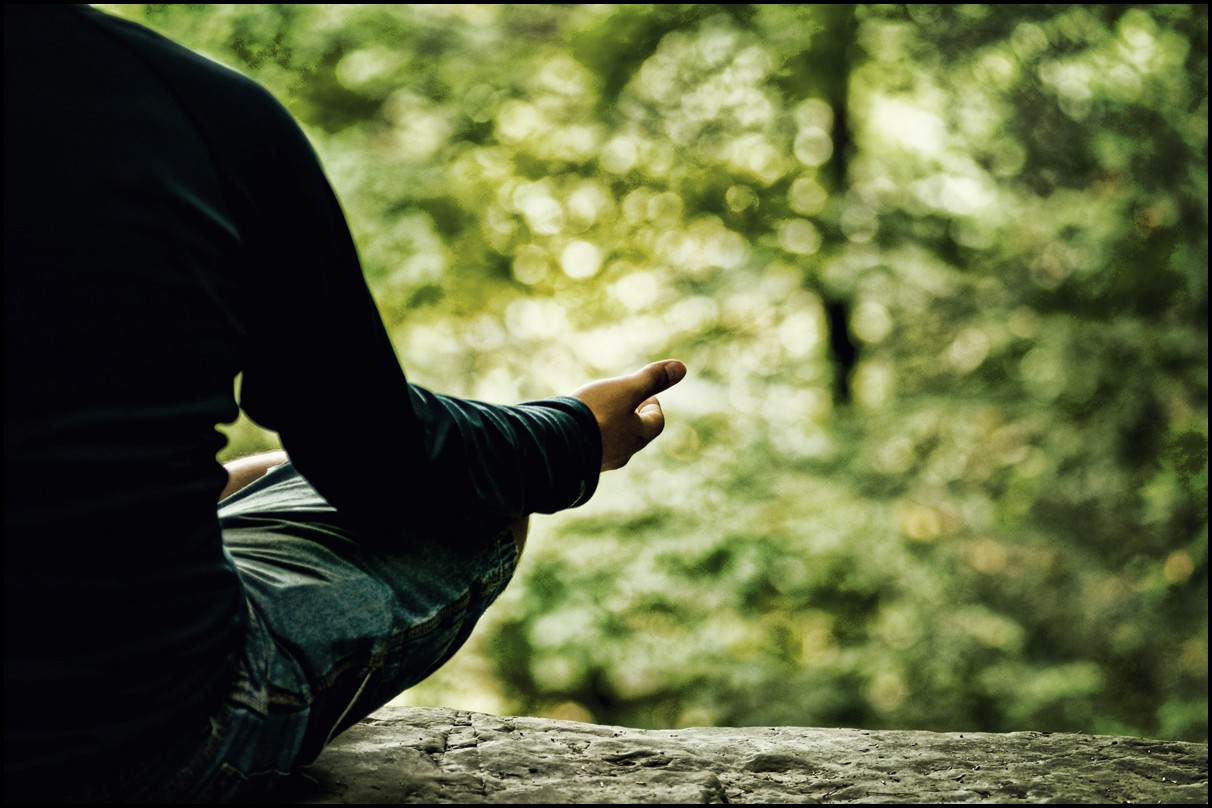A diffuse fear has paralyzed the world in recent weeks. Fear of an unknown tiny organic structure. Something the world has never seen before. The insecurity of this unknown prevents us from celebrating parties, coming together, embracing. Our lives to live.
Abinivesha – the fear of the unknown
Patanjali teaches us already in his second Sutra the goal of the Yoga practice: Yoga citta vritti nirodhah (I.2). A clear mind is one, whose thoughts are put to rest. Negative mental states prevent us from reaching this state. They paralyse the mind to perceive and decide with clarity. Abinivesha (II.9) is the last of the five obstacles (Kleshas, II.3), that stand in our way towards this goal. Abinivesha means as much as fear of the unknown. It is an uncertainty, a feeling of fear of what is coming. This fear may have a recognizable reason in the past. It may also be completely irrational, based only on an assumption that something might go wrong.
Abinivesha may refer to death, as the great unknown in our lives. But Abhinivesha also works in everyday life. Every day anew, we are exposed to changes. These changes sometimes scare us. We develop habits, that give us a feeling of security and stability. Habits help us to deal with the uncertainties of life. Even our brain strives to routine everything. Habits navigate us through life. Between 30 and 50 percent of our daily actions are determined by habits. Without them, our brain would be overwhelmed. And this is what makes it so difficult for us to try new things. To get involved in the unknown. Ultimately, the fear of the unknown drives us into rigidity and paralyses us. Sigmund Freud even associated the compulsion to repeat with the death instinct – the death we fear so much.
Emotions are stored in our bodies
Fear, like all other emotions, originates in the limbic system – our “emotional brain”. Yet our emotions have a physical dimension. Our language also expresses this connection between body and mind. Fear can literally close our throats. Even the origin of the word is based on the physical dimension. Fear comes from the Indo-European “anghu” (constricting) and is related to the Latin word “angustia” (constriction).
Emotions are stored in our body. There is a connection between certain emotions and areas of the body where the emotions are felt.
In Traditional Chinese Medicine, fear is associated with the kidney and bladder meridian. Meridians are energy lines in our body, each of which is assigned to a pair of organs.
The kidneys are the roots of life. The kidney meridian carries the potential for our liveliness and vitality. The bladder meridian enables us, in cooperation with the kidney, to perform powerfully and adapt to the conditions of life. We have sufficient resources to deal with changes and demands calmly and calmly.
Bladder and kidney energy work closely together accordingly. The kidney meridian runs from the sole of the foot via the leg to the groin up to the collarbone. The bladder meridian runs from the head down to the foot.
In yoga we can consciously take certain positions (asanas) to stimulate the meridians in which this life energy flows. Through the stimulation we can dissolve psychological or emotional blockages.
Yin positions in which the entire length of the legs and the outside of the hips are addressed, such as the dragon (Utthan pristhasana), the swan (Kapotanasana), the double dove (Agnistambhasana) or the dragonfly (Upavistha Konasana), can bring out fears that were stored deep in our connective tissue. At the same time, they can help us to rediscover the life energy that we have lost through suppressed fears. They can help us to accept changes and not hide from them.
Perception and observation
Emotions exist within us to protect us, to heal us and to grow from them. Emotions, even apparently negative ones, are not inherently bad. And fear also has its justification and sometimes a protective function. There may be a reason why we are afraid. Maybe we have had experiences and fear prevents us from repeating these experiences. Or maybe it does not.
Whatever the reason may be, fear, like any other emotion, is nothing we should repress when we feel it. Often we hear in yoga classes that we should observe our physical sensations and not judge them. This may not be tangible at first sight. But that is exactly, what it is all about: to become an observer of our self. Being attentive and facing our physical, mental and emotional sensations with equanimity. Being attentive and perceiving what is happening. Exactly where we feel the emotion. Where does fear come from? What triggers it? Where do I feel it? How do I deal with it? Am I still breathing? How is my heart? Where am I holding on? Observing, without trying to change. But also without running away, without despairing.
Our life is in constant change. No one moment is like the next. Every single moment is unique. Holding on to habits for fear of the unknown paralyses us. prevents us from living the moment, life.
For Patanjali the fear of the unknown is the greatest obstacle to overcome. Perhaps at some point we will succeed in no longer letting our fears guide us as individuals and as a community. Not to let our lives be dominated by fears. To accept the unknown with joy and curiosity. To celebrate, to love and to live.
Text by Daniela Hinderer
https://www.derstandard.at/story/1388514324706/wo-im-koerper-die-gefuehle-sitzen
https://www.zeit.de/zeit-wissen/2013/02/Psychologie-Gewohnheiten/komplettansicht

